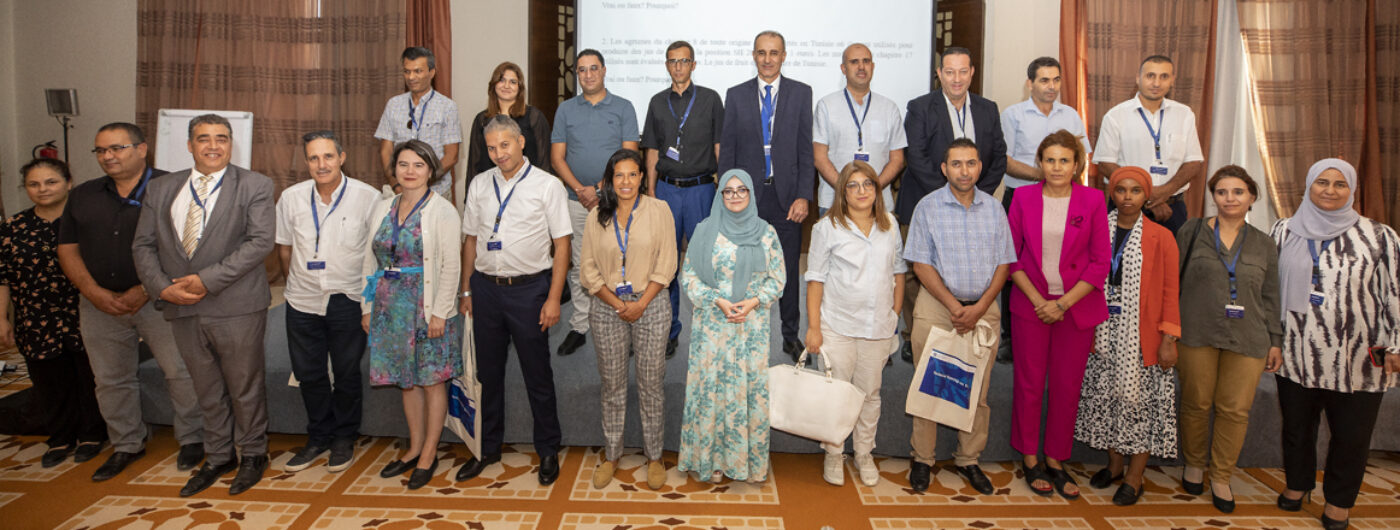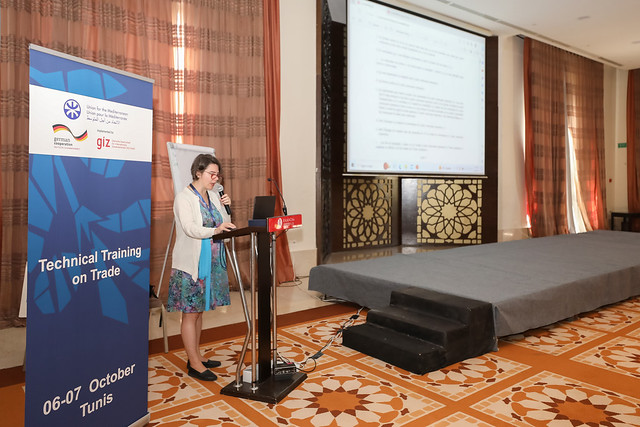
UfM Workshops on rules of origin for government and private trade professionals in Tunisia
6-7 October, 2023, Tunis. The UfM Workshops on Rules of Origin were held in Tunis on October 6-7, 2023 to provide both government and private sector stakeholders in Tunisia with insights into rules of origin, including transitional rules, and information on specific Harmonized System Codes relevant to various industries operating within pertinent trade agreements. Organized by the Union for the Mediterranean with the support of the German Development Cooperation (GIZ), more than 40 participants attended, with Ms. Alicia Figueroa from GIZ representing the UfM.
The workshops were divided into two distinct sessions, one for government officials and another for private sector representatives. The government-focused training module provided responsible staff officers with an understanding of the conceptual and legal aspects of rules of origin to facilitate stakeholder consultations during trade negotiations. Moreover, rules of origin handbooks were developed and practical coaching sessions were conducted to assist both government and private sector participants in understanding and applying these rules effectively.
The training sessions were carefully structured, progressing from the fundamental concepts of rules of origin, with a focus on the New Transitional Rules of Origin, to the more specific aspects of the Pan-Euro-Mediterranean Convention and its relevance to both preferential and transitional rules of origin. Additionally, they served as an occasion to present new administrative procedures and new product-specific rules of origin under the Transitional Rules of Origin and provide an update on new administrative processes.
Practical case studies drawn from various countries and economic sectors, covering different product types, were employed to illustrate how the Pan-Euro-Mediterranean Convention operates in diverse scenarios. Participants engaged with these case studies and had the opportunity to resolve them with guidance from an instructor, gaining further understanding of the correct application of rules of origin.
Given the inherent complexities of rules of origin, these sessions helped stakeholders comprehend the practical nuances of this critical aspect of international trade. Active interaction with the instructor fostered discussions and an exchange of ideas, with a question-and-answer sessions concluding each workshop ensuring that participants left with a more solid grasp of the topics covered.


